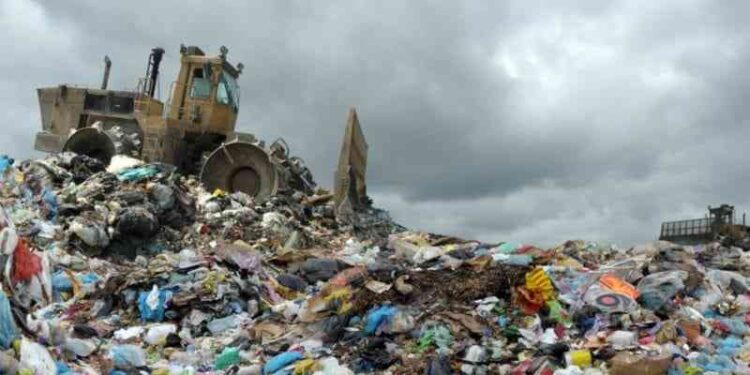THE City of Harare will fork out almost US$9,5 million in annual garbage collection fees if an exclusive deal still under discussion with Geo Pomona Waste Management Private Limited is consummated, the source was told this week.
Geo Pomona Waste Management Pvt Ltd CEO and executive chairperson Dilesh Nguwaya said according to the terms of the transaction, which were exclusively reported by the Independent last week, his firm will be collecting 650 tonnes of waste at a cost of US$40 per tonne daily.
Geo Pomona Waste Management’s plan is to get rid of waste, which has been blamed for deadly epidemic outbreaks, like cholera and typhoid, in Harare in the past few years.
The waste will be used for electricity generation for the national grid, according to Nguwaya.
“The City of Harare committed to deliver a minimum of 650 tonnes per day at US$40 per tonne,” Nguwaya said this week.
“They have been found wanting in respect of waste collection and delivery. This is the basis of the proposal we are currently discussing,” he added.
Nguwaya explained that the charges set out and agreed to by the City of Harare in the Joint Venture Concession Agreement were “fairly cheaper” than those charged in Europe.
“You will be aware that the standards at Pomona are in line with modern European trends in waste management. Below, we put the figures charged per tonne; Austria (US$166), Belgium (US$112), Denmark (US$114), Finland (US$116), France (US$95), Ireland (US$154), Italy (US$127), and the United Kingdom (US$135),” he said.
Zimbabwe’s power deficit has been a persistent issue for the country, with droughts affecting hydro power generation at Kariba and limited generating capacity from other sources.
To address this issue, the government has been relying on power imports from regional producers, spending approximately US$200 million on imports annually.
Small-scale power projects, such as the waste-to-energy plant at Pomona dumpsite, are seen as vital in helping Zimbabwe tackle its power deficits.
These projects have the potential to generate between 16 and 20 megawatts (MW) of power, which can be fed into the national grid. However, to reach their full potential, they require a consistent supply of raw materials, such as waste.
In the case of Geo Pomona Waste Management, the company needs 1,000 tonnes of waste daily to generate electricity. Negotiations with the City of Harare are ongoing, as the city has been struggling to collect waste effectively.
Once operational, small-scale projects like this will not only contribute to addressing Zimbabwe’s power deficit but also promote environmental sustainability by converting waste into energy.
“We plan to incinerate 1 000 tonnes per day of solid municipal waste to produce 16MW to 22MW of electricity, which will be fed to the national grid for the benefit of the country,” Nguwaya said.
“This is a sustainable way of managing waste and reducing the waste that goes to landfills. Previously, the (Pomona) site lacked proper access due to overflowing waste.”
The investment project has triggered fears that City of Harare workers under its public works department may lose jobs when Geo Pomona Waste Management starts to collect garbage.
However, Nguwaya allayed those fears, indicating that the scope of the project entailed retaining jobs.
“These are some of the issues that are under discussion. We do not believe in exclusionary business practices. The plan is to employ the City of Harare workers, who might be directly affected,” Nguwaya explained.
The decision to pave the way for Geo Pomana Waste Management to start collecting garbage was based on the failure by Harare to effectively collect waste in most parts of the capital, forcing some residents to engage private garbage collectors at monthly costs of around US$90 per household.
In Harare, areas like the central business district suffer from chronic litter and neglect, with piles of refuse accumulating unchecked for extended periods.
Apart from Harare, other local authorities in Zimbabwe have been battling to come up with a lasting solution to address the eyesore problem of garbage.
SOURCE : THE INDEPENDENT









